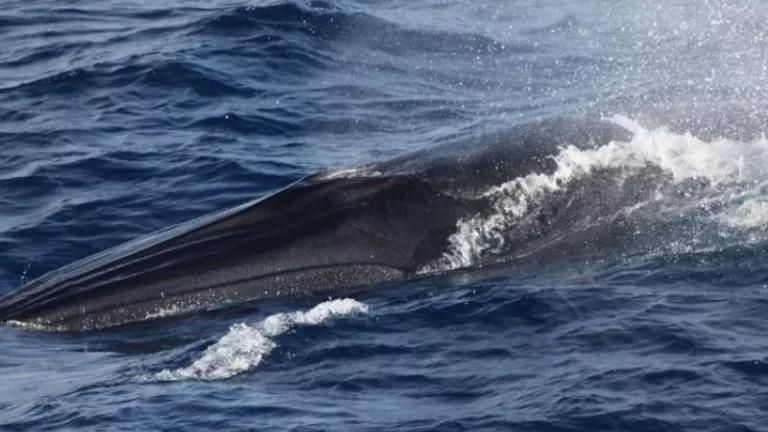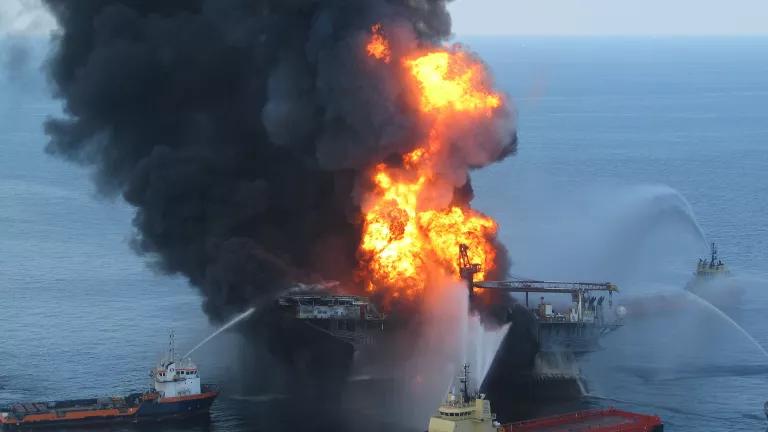NOAA’s Proposed Seafood Rule: Too Weak to Improve Conditions
NOAA’s Proposed Rule excludes protections for species at high-risk of illegal fishing & fails to help address human rights violations in the seafood industry.

Kindel Media via Pexels
Last year, the Biden administration committed to ramping up U.S. efforts to stop illegal, unreported, and unregulated (IUU) fishing practices and associated labor abuses in the seafood supply chain on the world stage at the United Nations Our Ocean Conference. The ambitious National Security Memorandum (NSM-11) on Combating IUU Fishing and Associated Labor Abuses directed federal agencies to better coordinate and focus their actions to eliminate abusive labor practices, such as forced labor, from the seafood industry and to restrict U.S. imports of seafood derived from IUU fishing practices.
In response to the White House directive, the National Marine Fisheries Service (NMFS) issued a Proposed Rule to expand the Seafood Import Monitoring Program (SIMP) to add species or groups of species and to combat IUU fishing and seafood fraud (NOAA-NMFS-2022-0119).
However, NMFS’ Proposed Rule is glaringly narrow in scope as it fails to propose the addition of several species at high risk of both illegal fishing and forced labor. The Proposed Rule incorporates a short list of six new species groups including cuttlefish, squid, octopus, eels, queen conch, Caribbean spiny lobster and two expanded groups: snappers and tuna. While NRDC supports this effort to expand the program, these proposed additions represent only a modest 5-10% increase by volume in SIMP’s coverage, which leaves nearly half of seafood imports without sufficient import controls. This narrow coverage means that existing loopholes will continue to be exploited by bad actors and a significant amount of seafood entering the U.S. market will continue to be the product of IUU actions.
Further, the Proposed Rule does not articulate the agency’s methodology or reasoning for including or excluding specific species. For instance, it is unclear why blue swimming crab and pollock, two species that are known to be targeted for IUU fishing, were not included on the expanded list, despite the wealth of publicly available information documenting this and the current ban on Russian seafood imports.

Lorenz X via Pexels
NRDC responded to the Proposed Rule by developing and proposing to the agency an example risk-based methodology it could implement to identify new priority species. Our criteria includes analyses on the relative complexity of supply chains, the risk that a product may be mislabeled, and the risk that the act of IUU fishing was coupled with labor violations.
NRDC’s analysis corroborated the relatively high risk of IUU fishing for some SIMP species, both currently selected (e.g., shrimp, true tunas) and proposed (e.g., squid, other tunas). However, we identified several species, such as blue swimming crab, snow crab, and salmon, that are among the highest-risk species, yet they are not included in the Proposed Rule. We also found that some species that are currently covered, including abalone and cod, ranked lower in IUU fishing risk than other mid-to-high risk species that the Program does not cover (e.g., mackerel, tilapia, and scallops). The results of our analysis call into question the rigor of the process NMFS used to select species for inclusion in this Proposed Rule.
NRDC recommended to the agency that NMFS add, at a minimum, swimming crab, all salmon, and all mackerel to SIMP in the Final Rule. NMFS should also publish a replicable, objective, and quantitative methodology describing its process for including and excluding species in SIMP based on the level of risk associated with that species.
The table below is taken from NRDC's comment letter to NOAA and summarizes our risk analysis for numerous fish species that are either actively covered by SIMP, were added to the Program in the Proposed Rule, or were excluded from the Proposed Rule.

The Table provides totaled scores for the highest volume species in U.S. seafood trade that are currently covered, proposed, or not covered under SIMP or the proposed SIMP expansion. The total score includes an evaluation of supply chain complexity, the risk of mislabeling, IUU and labor violations, as well as violations identified from other authorities, including those identified by the Trafficking in Persons report, List of Goods, and Biennial High Seas Driftnet Fishing Moratorium Protection Act report.
NRDC's Comment Letter to NOAA
The Proposed Rule also fails to address the horrific labor abuses that are abundant in seafood supply chains. Despite NMFS’ statements to the contrary, it is appropriate and necessary for the agency to include risks of human rights violations as a formal criterion for determining whether a species should be included in SIMP. This is particularly true given the well-established link between IUU fishing and labor abuses.
NMFS also failed to fulfill the Biden Administration's directive to federal agencies charging them to enhance their coordination in solving IUU fishing and human rights abuses. Further, in developing the rule, NMFS did not consult with partner agencies and stakeholders, a departure from NMFS’ previous SIMP rulemaking and associated actions. The agency therefore missed the opportunity to gather critical insights and expertise from partner federal agencies and from a broad group of stakeholders impacted by the issues of IUU fishing, seafood fraud, and labor abuses in the seafood sector.

Quang Nguyen Vinh via Pexels
The Proposed Rule also fails to address the horrific labor abuses that are abundant in seafood supply chains. Despite NMFS’ statements to the contrary, it is appropriate and necessary for the agency to include risks of human rights violations as a formal criterion for determining whether a species should be included in SIMP. This is particularly true given the well-established link between IUU fishing and labor abuses.
NMFS also failed to fulfill the Biden Administration directive for federal agencies to enhance their coordination in solving IUU fishing and human rights abuses. Further, in developing the rule, NMFS did not consult with partner agencies and stakeholders, a departure from NMFS’ previous SIMP rulemaking and associated actions. The agency therefore missed the opportunity to gather critical insights and expertise from partner federal agencies and from a broad group of stakeholders impacted by IUU fishing, seafood fraud, and labor abuses in the seafood sector.

Krishnendu Biswas via Pexels
The United States has the potential to become a global leader in the fight to end IUU fishing and combat labor abuses that violate fundamental human dignity. However, weak policies and poor implementation of existing regimes undermine this potential and exacerbate these illegal practices to the detriment of both our marine ecosystems and vulnerable populations.
With less than a year and a half remaining in President Biden’s administration, now is the time for NOAA to resolve these unacceptable gaps in SIMP. We urge White House leadership to encourage NOAA to improve SIMP and fulfill the critical directives of NSM-11.




